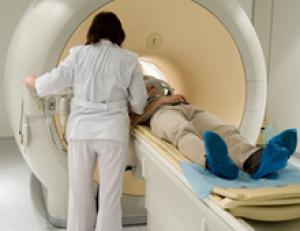'Mars on Earth' mission one step closer to launch
'Mars on Earth' mission one step closer to launch
 |
| The final eight candidates for the 105-day Mars500 study were put through their paces at the Central Clinical Hospital of the Russian Academy of Sciences in Moscow. ESA says the successful candidates will be paid the standard rate of most medical tests – a 'compensation' for their time rather than a financial reward. This is to ensure that the participants applied for the mission with the correct motivations, such as an intellectual interest in the project, and not just for financial gain (Image: ESA) |
The European Space Agency is one step closer to launching its Earth-bound simulations of a Mars mission, having whittled down more than 5600 applicants to just eight plucky candidates.
Following further selection, two of these eight candidates will join four Russian participants in March 2009 in an isolation chamber in Moscow. They will remain in the chamber, which mimics a space station, for 105 days. The project is a collaboration between ESA and the Russian Institute for Biomedical Problems (IBMP).
To get this far, the eight candidates have endured rigorous psychological and medical examinations, which included ultrasound scans of their internal organs, blood tests, and extended consultations with neurologists and psychologists.
"The candidates undergo exactly the same medical examinations as spaceflight participants. This ensures that we only send completely healthy candidates on the simulated journey to Mars," says Jennifer Ngo-Anh, ESA's Mars500 Programme Manager. Further tests will then determine the two final candidates who will participate in the first simulation - a decision that will be made in December.
Frozen dinners
Once inside the isolation chamber, the team will live their lives as if they are on a space mission, with just frozen meals to eat, no natural sunlight and a 20-minute delay to their communication with "ground control". They will be expected to perform tasks such as cleaning, cooking and conducting scientific experiments, while being studied by outside researchers.
The results of this first 105-day experiment will allow ESA and the IBMP to fine tune a longer 500-day run in the isolation chamber, currently scheduled for later in 2009, that would mimic all stages of a Mars mission - including the journey, landing and return to Earth (see Earthbound experiment to recreate stress of Mars mission).
Together, both simulations should provide vital information on how participants cope with isolation for such long periods, with the team studying their stress, hormone regulation, immune response and sleep patterns, and the dynamics of the group and how they react to different situations. This information could then be used to plan a real trip to Mars.
David Robson
New Scientist, November 11, 2008
http://www.newscientist.com/article/dn16014-mars-on-earth-mission-one-step-closer-to-launch.html
|